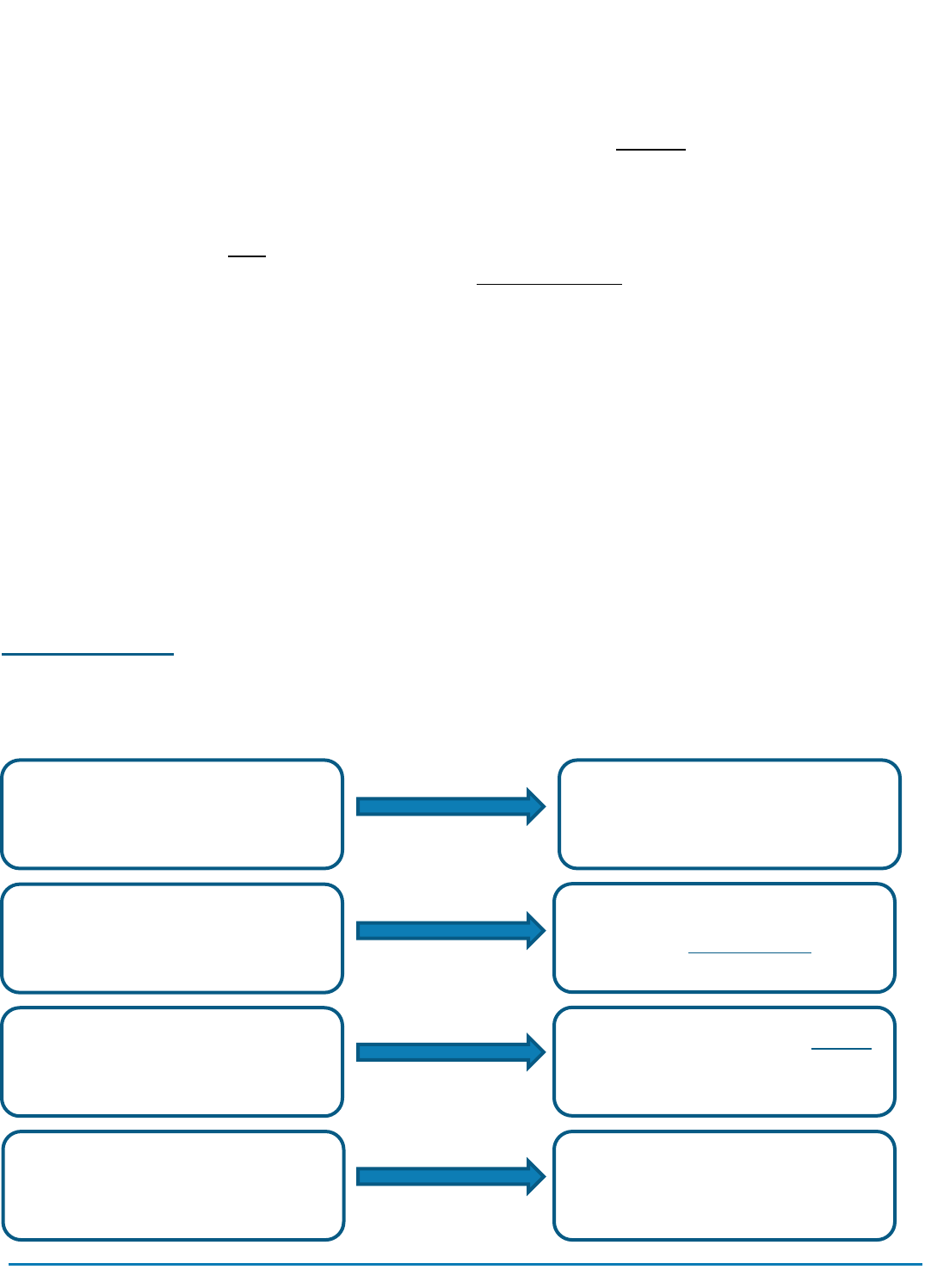
Education Law Center | www.elc-pa.org | facebook.com/educationlawcenter | @edlawcenterpa
SPECIAL EDUCATION EVALUATIONS
August 2023
Before a child can begin receiving special education services, the child must be evaluated to
determine if the child is eligible for these services. The evaluation helps determine if the child
has a disability and needs special education services. The evaluation is also important to
identify changes to instruction, services, and supports the child needs to succeed.
INITIAL EVALUATION
HOW DO I REQUEST AN EVALUATION?
If you think that your child may need special education services, you can request an evaluation
using the following steps:
• Write an email or letter asking that your child be evaluated;
• Include the date, your child’s full name, your name, the reasons why your child needs an
evaluation, and your contact information;
• Send the email or letter to your child’s teacher, the special education director, the principal,
the superintendent, or a counselor. You may also send an email copying all these individuals;
• Keep a copy of the email or letter for yourself. The date of this communication is important.
NOTE: You can use this fillable evaluation request letter. This can be sent by email, mail carrier, or
hand-delivered.
WHAT SHOULD HAPPEN AFTER I REQUEST AN EVALUATION?
After you send the letter or email, the school must provide a Permission to Evaluate (PTE)-Consent
Form and make it “readily available” for you to sign.
1
Click here for a sample copy of this form. This
form will explain reasons for the evaluation, any records or reports the school will use, and the types
of tests that the school will do. Check with the school if you have not received the PTE-Consent Form
within 10 days.
2
The school can only begin the evaluation after you sign the PTE-Consent Form.
3
You can also ask for an evaluation by speaking to a teacher or administrator. Under state law,
the school is required to give you the PTE-Consent Form within 10 days.
4
However, we strongly
suggest that you ask in writing for the evaluation so that you have a record of the date you
requested the evaluation.
The PTE-Consent Form for an initial evaluation should always come with a Procedural Safeguards
Notice that explains your rights. Click here for a sample Procedural Safeguards Notice.
If your school refuses to provide the PTE-Consent Form, you should request an explanation of the

Special Education Evaluations| 2023
Education Law Center | www.elc-pa.org | Facebook.com/EducationLawCenter | @EdLawCenterPa
school’s refusal to provide the PTE-Consent Form. Ask the school to give you a 38T38TNotice of
Recommended Educational Placement or Prior Written Notice (NOREP/PWN)38T38T form that explains the
school’s reasons for refusing to provide the Permission to Evaluate form and conduct the requested
evaluation. You have the right to challenge any refusal to evaluate your child.
CAN ANYONE ELSE REQUEST AN EVALUATION FOR MY CHILD?
Yes. A school can request to evaluate your child if school staff think that your child might need
special education services. The school has an obligation to identify a child who may need services.
This is called “child find.”
5
The school also must ensure that families understand their child’s right
to special education and a parent’s important role in the process.
6
If the school wants to evaluate
your child for the first time, they must send you a PTE-Consent Form.
7
WHAT IF I DO NOT WANT THE SCHOOL TO EVALUATE MY CHILD?
Generally, it is your decision whether your child is evaluated.
8
Some special situations allow the
school to evaluate a child against the wishes of the parent.
9
If it wishes to do this, the school must
request a hearing and get permission from a hearing officer.
10
Additionally, you may lose the right
to make this decision if your child is in the custody of the Children and Youth system. In that
situation, a Family Court judge can give someone else the right to agree to an initial evaluation.
11
Note: Agreeing to an evaluation is not the same as agreeing to special education services. An
IEP must be created before services can start. If you do not approve the IEP, the school cannot
start special education services.
12
WHAT IF THE SCHOOL REFUSES TO EVALUATE MY CHILD?
The school must give you the written notice ‒ the NOREP/PWN ‒ explaining the decision not
to test your child or the decision that your child does not qualify for special education.
13
If
this happens, you can fight the decision by asking for mediation, filing a complaint with the
Bureau of Special Education, or requesting a special education due process hearing. You can
learn more about these steps in ELC’s Resolving Special Education Disagreements fact sheet. If
the school has violated a clear legal rule, including the 60-day timeline
14
for conducting an evaluation
or reevaluation,
15
you can file a complaint with the Pennsylvania Department of Education’s Bureau of
Special Education (BSE).
16
Click here for more information on how to file a complaint.
If your child turns out to be eligible for special education services after the evaluation is
conducted, and the child had to wait to get those services because the school did not do the
evaluation or failed to complete the evaluation within the required 60-day time frame, you should
request compensatory education services (make-up services) for every hour of every day that your
child failed to receive a free, appropriate public education.
17
These services are intended to help
your child catch up or compensate for the time the child failed to receive special education services.
18
WHAT HAPPENS AFTER I SUBMIT A CONSENT TO AN EVALUATION FORM AND THE SCHOOL
AGREES TO CONDUCT THE EVALUATION?
The diagram on the following page outlines the process that must be followed under federal and
state law for conducting an evaluation.

Special Education Evaluations| 2023
Education Law Center | www.elc-pa.org | Facebook.com/EducationLawCenter | @EdLawCenterPa
* This evaluation must be administered in the child's native language or other mode of
communication “unless it is clearly not feasible to so…” 23 CFR 300.304 (c)(ii).
Parent Signs
Consent for an
Evaluation
Evaluation Begins*
“Qualified professionals,” which may include a school
psychologist, speech pathologist, teachers, or specialists, begin
testing and gathering data about the child.
Academic
Testing
Language
Testing
Motor Testing
Ability
Testing
Social Skills
Testing
Outside
Sources
Teacher
Input
Parent Input
Evaluation Report (ER)
Within 60 days of consent, the school must give you an ER, which includes
the findings from the evaluation and recommendations for your child. The
ER will state whether your child is eligible for special education.
Individualized Education Program (IEP) Meeting
If your child is eligible for special education, the school must create an IEP, which is
the annual plan for your child’s education, within 30 days of the ER. The ER should
be used to create an IEP. Parents are an important part of this process and must
consent in order for any special education services to start. You may agree to some
services and not to others. The IEP will be implemented within 10 days of consent.

Special Education Evaluations| 2023
Education Law Center | www.elc-pa.org | Facebook.com/EducationLawCenter | @EdLawCenterPa
HOW DOES THE EVALUTION TEAM DECIDE IF MY CHILD GETS AN IEP?
The evaluation team will answer two questions:
1. Does your child have a disability?
The law lists 13 different types of disabilities that qualify a child for special education
services.
19
A medical diagnosis of a disability (such as ADHD) does not automatically make the
child eligible for special education. A child cannot qualify for special education if their learning
problem is caused by something other than a disability. For example, a child may be struggling
because the child has not had proper instruction in reading or math.
20
2. Because of that disability, does your child need specially designed instruction and related
services?
The evaluation team will consider whether your child needs “specially designed instruction”
(SDI) ― instruction that is not part of the typical curriculum ― because of a disability. You
should think about what your child needs to learn and what changes would help your child learn
that are not a part of the typical curriculum.
If the answer to both questions is YES, then your child will qualify for special education and an IEP.
CAN EVALUATIONS BE COMPLETED IN LESS THAN THE 60-DAY TIMELINE?
Yes. Under the Individuals with Disabilities Education Act (IDEA), a key special education law, all
students who are suspected of having disabilities that would make them eligible for special
education must be evaluated or reevaluated within 60 days after receiving a signed Permission to
Evaluate (PTE) or Permission to Reevaluate (PTRE). Evaluations can be completed before 60-day
timeline elapses, but this is not required.
CAN STUDENTS WHO ARE HOMELESS, IN FOSTER CARE, OR IN THE JUVENILE JUSTICE BE
EVALUATED ON AN EXPEDITED TIMELINE?
Yes. Students experiencing homelessness or involved in the child-welfare or juvenile justice
systems are considered “highly mobile,” and can receive expedited evaluations and reevaluations.
These assessments are completed within 30 days rather than within 60 days, in accordance with
guidance from the United States Department of Education’s Office of Special Education and
Rehabilitative Services.
21
It is best practice to evaluate all “highly mobile” students on an
expedited basis to ensure they can receive needed evaluations and appropriate services, which are
often disrupted due to frequent moves.
22
To learn more about students’ rights to timely evaluations, review this fact sheet, and to learn
more about students’ rights in the special education context, see ELC’s Guide For Parents and
Advocates on the Right to Special Education in Pennsylvania.

Special Education Evaluations| 2023
Education Law Center | www.elc-pa.org | Facebook.com/EducationLawCenter | @EdLawCenterPa
IMPORTANT POINTS ABOUT SPECIAL EDUCATION EVALUATIONS
There are several important points for you to know if you are seeking an evaluation for your child:
• The school cannot tell you that it is putting your child on a waitlist for an evaluation. The
timelines are requirements. When you request an evaluation, the school has two options:
1) give you a PTE-Consent Form to sign consent for the evaluation; OR 2) give you written
notice about why an evaluation is not necessary.
23
You can agree to extend the timelines.
• The evaluation is free. You cannot be asked to pay for any part of the evaluation.
24
• The evaluation must be done in your child’s native language or the language that will lead to
the most accurate results. The evaluation also must consider your child’s cultural
background so that the testing will not be racially or culturally biased.
25
• No single test can determine whether a child has a disability or needs special education.
26
WHAT IF MY CHILD MOVES TO ANOTHER DISTRICT BEFORE THE INITIAL EVALUATION IS DONE?
The same timelines still apply. A school may not have more than 60 calendar days
27
to finish the
evaluation if the child moves into a new school district before the initial evaluation is done.
28
However, the school can get more time if you agree and the school is working to get it done
quickly.
29
The new and old schools must coordinate testing to evaluate the child as soon as
possible.
30
Your child’s records should be shared quickly between the schools. In some cases, a new
school may request additional time to repeat some tests, using its own team of professionals. The
school must obtain your consent to extend the deadline for completing the evaluation.
REEVALUATION
ONCE MY CHILD HAS AN IEP, WHEN MUST MY CHILD BE REEVALUATED?
Every child who receives special education must be reevaluated every three years UNLESS
The school and the parent agree
in writing that the reevaluation
is not necessary
No reevaluation
The child has an intellectual
disability
The reevaluation must occur at
least every 2 years
The school believes that the
child may not have a disability
any longer
Reevaluation must occur before
the child’s IEP is removed
The parent requests a
reevaluation based on lack of
progress or changed needs
Reevaluation can occur before
the three-year reevaluation, but
not more than once per year

Special Education Evaluations| 2023
Education Law Center | www.elc-pa.org | Facebook.com/EducationLawCenter | @EdLawCenterPa
Think carefully before you agree to pass on (“waive”) your child’s reevaluation. Three years (or
two years for a child with an intellectual disability) is a long time in the life of a child. Even if
the child’s disability has not changed, their needs, strengths, weaknesses, and behavior may
have changed. Such changes show that the child’s IEP should be revised using more recent
information.
The school also does not have to reevaluate the child if the child will no longer be eligible for
special education due to graduation or age.
31
In Pennsylvania, students can continue to receive
special education until the student’s 22nd birthday.F
32
At that point, the school district must
instead give the student a written summary of academic achievement and functional performance,
as well as recommendations for how the child can achieve their postsecondary goals.
33
If your child plans to enter college or a technical/vocational program, a recent evaluation will help
inform a “Section 504 accommodations plan” that identifies accommodations and services your
child may need in postsecondary programs (e.g., extended time for tests). Your child’s right to an
IEP does not apply to these programs. Learn more about Section 504 here.
WHAT MUST A REEVALUATION DECIDE AND HOW?
There are many purposes for a reevaluation:
The reevaluation process begins with a review of information about the child by the IEP team. This
could include PSSA scores, report cards, and progress monitoring reports. The team must decide what
additional information, including testing, interviews, and work samples, is needed for the
reevaluation.
34
You can also request specific testing if you have concerns regarding whether or not
your child may have a new disability or is making progress, or to inform transition planning for children
age 14 and older.
35
Once this information is collected, the team will produce a Reevaluation Report.
Click here for a sample annotated Reevaluation Report from the Pennsylvania Department of Education.
WHY
REEVALUATE?
To see if a
child still needs
an IEP
To decide if
the child is
progressing
To see if IEP
changes are
needed
To learn the
child’s current
needs
To consider a
new disability

Special Education Evaluations| 2023
Education Law Center | www.elc-pa.org | Facebook.com/EducationLawCenter | @EdLawCenterPa
WHAT IF I DISAGREE WITH THE SCHOOL ABOUT THE EVALUATION?
The school must give you a NOREP, a written notice explaining the decision about whether your child
qualifies for special education.
36
If you disagree with the school’s testing and evaluation, you can
request an “independent educational evaluation” or IEE.
37
This is an evaluation conducted by a
qualified examiner, such as a certified school psychologist who is not employed by the school. You can
request that the school pay for an IEE in writing and then the school must either 1) pay for the IEE or
2) request a special education due process hearing to defend its evaluation.
38
You can also obtain your
own IEE at your own expense and the IEP team must consider its findings and recommendations.
39
You can also challenge the school’s decision in several different ways: by asking for mediation, filing a
complaint with the Bureau of Special Education, or requesting a special education hearing. You can
learn more about these steps in our fact sheet on resolving special education disagreements.
If your child turns out to be eligible for special education services and the child had to wait to get
those services because the school did not properly determine your child was eligible, you should
ask for compensatory education (makeup services) to help your child catch up for the time the
child was deprived of services.
The Education Law Center-PA (ELC) is a nonprofit, legal advocacy organization with offices in Philadelphia and
Pittsburgh, dedicated to ensuring that all children in Pennsylvania have access to a quality public education. Through
legal representation, impact litigation, community engagement, and policy advocacy, ELC advances the rights of
underserved children, including children living in poverty, children of color, children in the foster care and juvenile
justice systems, children with disabilities, multilingual learners, LGBTQ students, and children experiencing
homelessness.21
ELC’s publications provide a general statement of the law. However, each situation is different. If questions remain
about how the law applies to a 0T43T0T43Tparticular situation0T43T0T43T, contact ELC’s Helpline for information and
advice ― visit www.elc-pa.org/contact or call 215-238-6970 (Eastern or Central PA) or 412-258-2120 (Western PA) ― or
contact another attorney of your choice.
1
22 Pa. Code § 14.123(c).
2
22 Pa. Code § 14.123(c).
3
34 C.F.R. § 300.300(a)(1)(i).
4
22 Pa. Code § 14.123(c).
5
34 C.F.R. § 300.111; 22 Pa. Code § 14.121.
6
34 CFR § 300.322.
7
34 C.F.R. § 300.300(a)(1)(iii).
8
34 C.F.R. § 300.300(a)(1)(i).
9
See, e.g., Maritime Academy Charter Sch., No. 24725-20-21 (SEA PA, May 6, 2021) (IHO ordered that student could be
evaluated despite his parent’s lack of consent due to the student’s history of psychiatric diagnoses and significant,
atypical behaviors that put the student, other students, and staff at risk).
10
34 C.F.R. § 300.300(a)(3)(i).
11
34 C.F.R. § 300.300(a)(2)(iii); 237 Pa. Code § 1147.
12
34 C.F.R. § 300.300(b)(4)(ii).
13
34 C.F.R. § 300.503(b).
14
22 Pa. Code § 14.123(b) (note that the 60-calendar day timeline does not include summer days).
15
Note that this is not the only basis to file a complaint with the Bureau of Special Education.
16
34 C.F.R. § 300.153; see also State Complaint Process, The Office of Dispute Resolution, at
https://odr-pa.org/parent-resources/state-complaint-process.

Special Education Evaluations| 2023
Education Law Center | www.elc-pa.org | Facebook.com/EducationLawCenter | @EdLawCenterPa
17
M.C. v. Cent. Reg'l Sch. Dist., 81 F.3d 389, 391-92 (3d Cir. 1996) (the “child is entitled to compensatory education
for a period equal to the period of deprivation”).
18
See G.L. v. Ligonier Valley Sch. Dist. Auth., 802 F.3d 601, 625 (3d Cir. 2015) (citing D.F. v. Collingswood Bd. of
Educ., 694 F.3d 488, 498 (3d Cir. 2012)); see also Reid ex rel. Reid v. D.C., 401 F.3d 516, 518 (D.C. Cir. 2005)
(compensatory education should “aim to place disabled children in the same position they would have occupied but for
the school district's violations of IDEA").
19
34 C.F.R. § 300.8.
20
34 C.F.R. § 300.306(b)(1).
21
Letter from Office of Special Education and Rehabilitative Services to State Director of Special Education (Nov. 10,
2022), https://sites.ed.gov/idea/files/Letter-to-State-Directors-of-Special-Education-on-Ensuring-a-High-Quality-
Education-for-Highly-Mobile-Children-11-10-2022.pdf.
22
Letter from Office of Special Education and Rehabilitative Services to State Director of Special Education (Nov. 10,
2022), https://sites.ed.gov/idea/files/Letter-to-State-Directors-of-Special-Education-on-Ensuring-a-High-Quality-
Education-for-Highly-Mobile-Children-11-10-2022.pdf.
23
22 Pa. Code § 14.123(c).
24
34 C.F.R. § 300.17.
25
34 C.F.R. § 300.304(c)(1)(i).
26
34 C.F.R. § 300.304(b)(2).
27
22 Pa. Code § 14.123(b) (note that the 60-calendar day timeline does not include summer days).
28
34 C.F.R. § 300.301(d)(2).
29
34 C.F.R. § 300.301(e).
30
34 C.F.R. § 300.323(g)(2).
31
34 C.F.R. § 300.305(e)(2).
32
20 U.S.C. § 1412(a)(l)(A); 34 C.F.R. § 300.102(a)(3); see also IDEA B FAQ: Responses to Policy Revision to Age of
Eligibility, Penn. Dept. of Educ., at https://www.education.pa.gov/Pages/IDEABFAQ.aspx.
33
34 C.F.R. § 300.305(e)(3).
34
34 C.F.R. § 300.305(a)(2).
35
34 C.F.R. § 300.43.
36
34 C.F.R. § 300.503(b).
37
34 C.F.R. § 300.502.
38
34 C.F.R. § 300.502(b).
39
34 C.F.R. § 300.502(c).

Request for Evaluation to Determine Eligibility for Special Education
____________________
Parent’s Name
____________________
Address
____________________
Contact Information
____________________
Principal’s Name
____________________
School Name
_____________________
School Address
Date_______________
Dear Principal ___________________,
I am writing to request that my child __________________________________ whose date of
birth is _____________receive an evaluation to determine eligibility for special education
services. [If applicable: My child’s language is _____________________. My language is
_____________. Accordingly, I request that: ___ my child be evaluated in their preferred
language and/or ___ I receive interpretation and translation services.] My child is currently in
the _____grade at _________________. I am concerned about the progress my child is making
at school in the following areas:
Specifically, I am concerned about the following:
Therefore, I am requesting that my child receive a comprehensive psychoeducational evaluation
to determine whether my child needs services, and if so, what services and supports are needed. I
would like to participate with the school staff to decide what testing is done and what other
information should be collected and provided about my child.
In addition to this request in writing, I made a request verbally for a comprehensive
psychoeducational evaluation on or about _______________ to ____________________. Please
provide me with a copy of a Permission to Evaluate Consent Form (PTE) within the required 10-
day period and I will sign it.
Thank you for your time and consideration. I can be reached at _________________or
__________________ should any questions arise.
Sincerely,
_________________________
CC. Director of Special Education: _______________________
Main Classroom Teacher: __________________________
